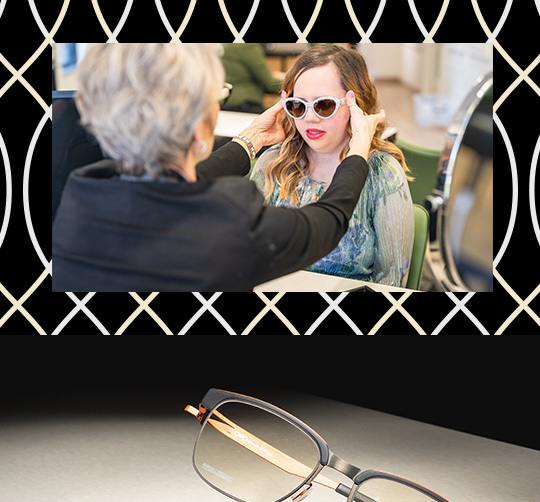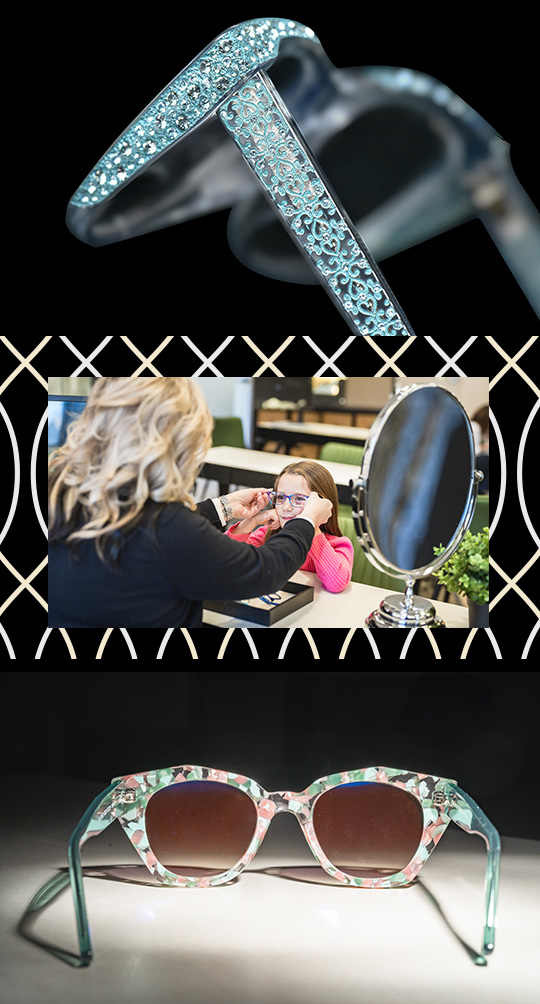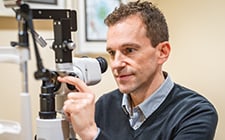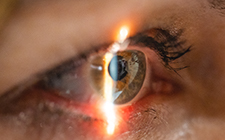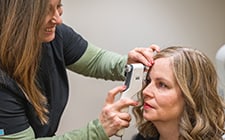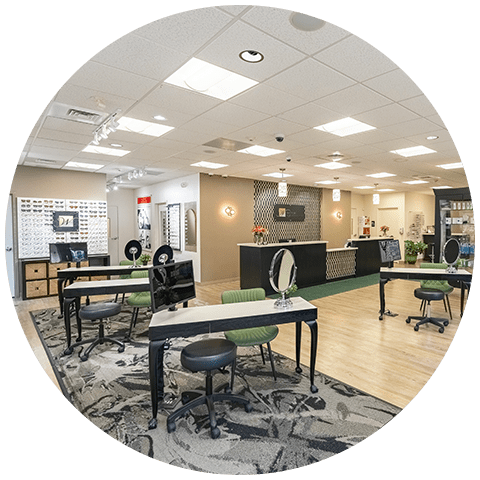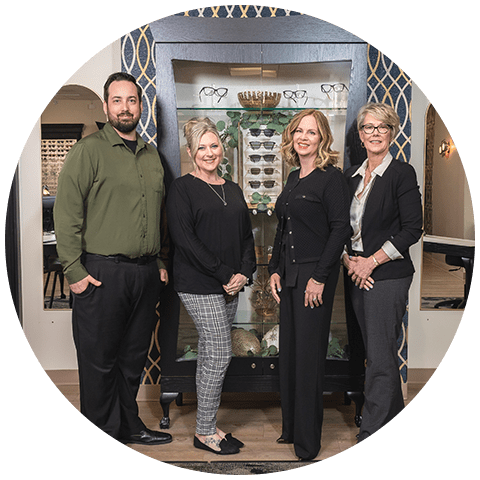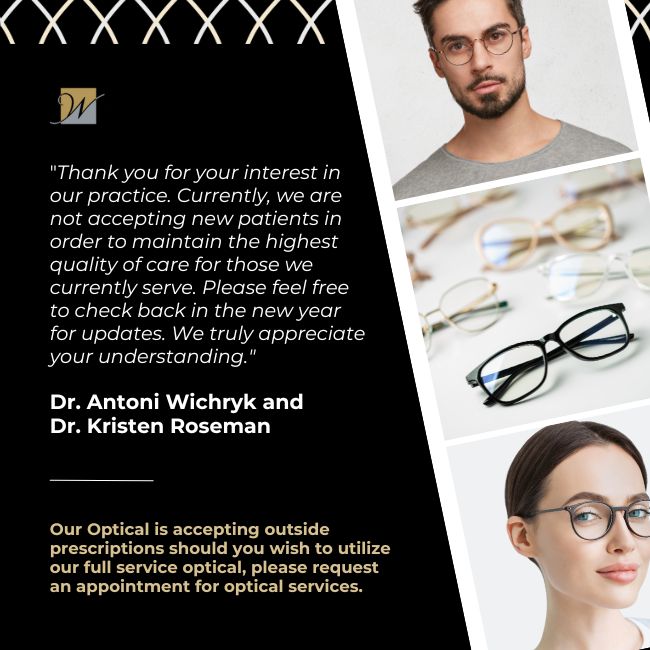Medical Exams & Eye Disease Care
Your eye health is a priority for our team at Wichryk Eye, and eye disease can compromise your long-term visual health. Eye disease can come in different forms, including cataracts, glaucoma, age-related macular degeneration, or diabetic eye disease.
It all starts with consistent eye exams so our team can detect issues early. We take a hands-on approach to detecting, monitoring, and managing eye disease.
Our medical exams implement technology to get the full picture of your eye health—contact us to schedule your appointment and get started on eye disease management today.
Book AppointmentTechnology & Education
Our eye disease services are centered around patient education. We implement and explain diagnostic technology such as OCT, visual field testing, tonometry, and more to capture the details of your eye health and discuss your options.
The earlier we detect signs of eye disease, the sooner we can get started on preparing a personalized treatment plan to address your needs.
Our Diagnostic Technology
Our team is equipped with modern technology and imaging equipment to help diagnose and manage the common forms of eye disease, such as glaucoma, cataracts, diabetic retinopathy, and macular degeneration.
Through our technology, we’re able to educate our patients and walk them through the diagnostic process. Early detection and education allow our team to get started on your personalized treatment plan.
Retinal Imaging
The optomap retinal exam is a noninvasive diagnostic procedure that obtains a panoramic view of the retina located at the back of the eye. With our retinal exam, we’re able to see 80 percent of the retina and review the results for early signs of retinal abnormalities.
The digital image is available on-screen immediately for the doctor and patient to review together and will be saved in the patient’s file to compare with future scans for signs of change.
Visual Field Testing
The visual field is a diagnostic test to measure visual fields or perimetry. The visual field test measures the entire area of peripheral vision that can be seen while the eye is focused on a central point.
During this test, lights of varying intensities appear in different parts of the visual field while the patient’s eye is focused on a certain spot. The perception of these lights is charted and then compared to the results of a healthy eye at the same age as the patient to determine if any damage has occurred.
Optical Coherence Tomography (OCT)
Optical coherence tomography, also known as OCT, is an imaging system that uses light waves to produce a high-resolution view of the cross-section of the retina and other structures in the interior of the eye.
Conditions we can detect with an OCT can include:
- Macular holes
- Macular swelling
- Optic nerve damage
- Age-related macular degeneration
- Macular pucker
- Glaucoma
- Cataracts
- Diabetic eye disease
- Vitreous hemorrhage
iCare Tonometer
Our technicians will check your intraocular pressure (IOP) with an iCare tonometer during your exam.
Based on a proven accurate measuring principle known as rebound technology, a lightweight probe is used to make momentary and gentle contact with the cornea. The rebound technology eliminates corneal disruption, promoting patient discomfort. This screening takes only a few seconds.
The Different Forms of Eye Disease
Eye disease management doesn’t have to be confusing or overwhelming. Our team is in your corner to help you understand and navigate the different forms of eye disease. Through our technology and thorough diagnostic process, we can stress the importance of regular eye exams and early detection.
Our team is always happy to go more in-depth about your specific concerns and how we can help when you visit us for your appointment.
Glaucoma
Glaucoma is a group of eye conditions that cause damage to your optic nerve, which is responsible for sending visual information to your brain. Damage to your optic nerve can lead to vision loss and blindness if not detected and treated early.
Damage from glaucoma can be caused by high pressure in the eye, referred to as intraocular pressure. We offer tonometry to check for glaucoma, which is an eye test that can detect changes in eye pressure before you may be aware of anything wrong.
Age, family history, and previous eye injuries can all be glaucoma risk factors. Maintaining a regular eye exam schedule is essential for detecting glaucoma early.
Cataracts
Cataracts occur when the normally clear lens of the eye becomes clouded and can include symptoms like blurry vision, dim or yellowed vision, and difficulty seeing at night.
If cataracts progress to a later stage and prevent you from going about your daily activities, such as reading or driving, our team will recommend cataract surgery.
We offer pre-surgery consultations and post-op care for cataracts.
Age-Related Macular Degeneration (AMD)
AMD is a progressive disease that affects your central vision, damaging the macula. This damage can make activities like reading and driving much more difficult. AMD is a leading cause of vision loss among older adults and has 2 main forms:
- Dry AMD is the more common form of the disease and occurs in early, intermediate, and late stages. This form of AMD occurs when the macula thins with age.
- Wet AMD is the less common form of the disease and can cause faster and more severe vision loss. Wet AMD occurs when abnormal blood vessels grow in the back of the eye and damage the macula.
We diagnose and monitor AMD with OCT scans.
Diabetic Eye Disease
Diabetes is a well-known condition that affects your blood sugar, but it can also have an impact on your vision.
Diabetes can increase your risk of developing eye diseases such as glaucoma, cataracts, and diabetic retinopathy, which can be a significant vision loss concern for those affected.
Some signs and symptoms of diabetic retinopathy can include blurry vision, a loss of central vision, and difficulty seeing at night. Our technology, such as retinal imaging and visual field testing, allows us to diagnose and manage diabetic eye disease early.
With You Every Step of the Way
Eye disease can be overwhelming to understand and manage, but you don’t have to go through it alone. We offer patients comprehensive eye disease diagnosis and management throughout the Lehigh Valley.
Don’t delay—schedule your appointment to get checked for eye disease today.
Book AppointmentVisit Us

Our Address
- 6451 Village Lane, Suite 200
- Macungie, PA 18062
Contact Information
- Phone: 610-965-1800
Our Hours
Hours
- Monday: 8:00 AM – 5:00 PM
- Tuesday: 8:00 AM – 5:00 PM
- Wednesday: 8:00 AM – 5:00 PM
- Thursday: 8:00 AM – 5:00 PM
- Friday: 8:00 AM – 2:00 PM
- Saturday: Closed
- Sunday: Closed
Our Brands
